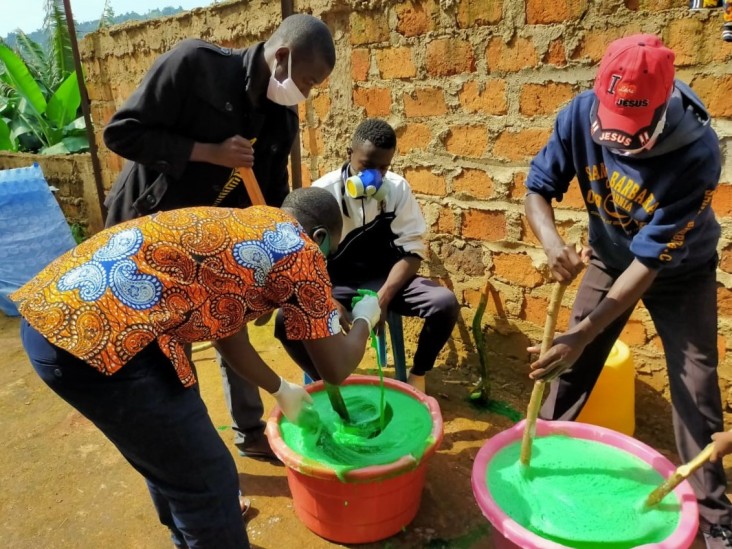Speeches Shim

While health pandemics test healthcare systems, the economy, and our resilience, youth in Kenyan counties are rising to the challenge. Youth complement the incredible work of healthcare practitioners in preventing, creating awareness about, and managing the virus. In Bungoma, Garissa, Kericho, Kisii, Kwale, Migori, Nairobi, Nyeri and West Pokot counties, USAID supported youth through the Kenya Youth Employment and Skills (K-YES) program to respond to the COVID-19 crisis in their communities.
One young leader, Richard Todosia, the president of the one million-member National Youth Bunge (“Parliament” in Kiswahili) Association and president of his local chapter, West Pokot County Bunge Forum, explained how youth are providing valuable technical and leadership skills in their communities to reduce the spread of COVID-19.
“Coronavirus affects each one of us. I’m very pleased and proud of every young Kenyan who is providing accurate information, dispelling myths, reducing stigma and encouraging observation of social distancing, and wearing of face masks,” Todosia said.
He oversaw the production and distribution of face masks and liquid soap, and dissemination of information on COVID-19 in West Pokot County. During public health pandemics, reliable and verifiable information helps people know how to protect themselves and each other, and promotes positive social behavior change.
“Leadership is best manifested in the time when help is most needed. In West Pokot County, we have reached nearly 150,000 people with information on the disease [COVID-19]. We have produced handwashing liquid soap, and distributed face masks and jerry cans to about 5,000 households [in West Pokot],” Todosia added.
Local, well-organized grassroots youth networks can be trusted sources of information and enablers of positive social behavior change. These networks are based in the communities they serve and play a critical role in providing local context that shapes co-creation of effective solutions.
To date, the USAID K-YES program -- in partnership with youth networks in nine counties -- have produced 76,000 liters of liquid soap, 20,000 face masks, and distributed 300 jerry cans of water and 45 thermometer guns in the nine counties. In total, USAID’s $50 million investment is supporting the Government of Kenya’s response and recovery efforts to meet the immediate and longer-term challenges that COVID-19 is posing. This includes working with frontline workers — and youth — to slow the spread, care for the affected, and equip local communities with the tools needed to fight COVID-19.

Comment
Make a general inquiry or suggest an improvement.